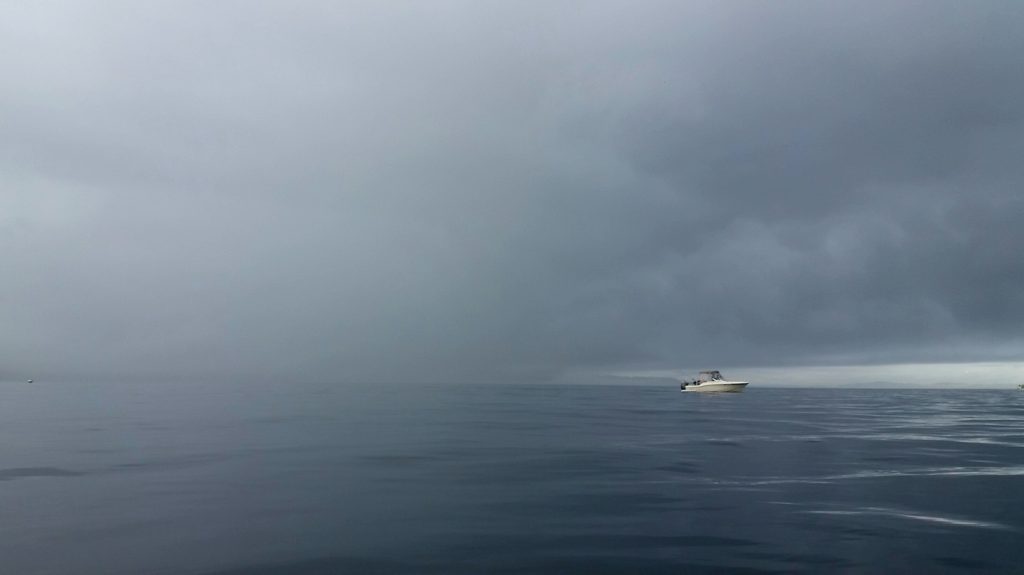
Salmon Anglers Ask To Be Boldt Decision Party In Bid To Boost Sub-40 Percent Chinook Shares
A Puget Sound sportfishing organization is asking a federal court to allow it to intervene in the Boldt Decision, a first step towards requesting WDFW better abide by the landmark legal case that reaffirmed the 50-50 split of harvestable salmon and steelhead with Western Washington treaty tribes.

Fish Northwest filed the lawsuit in U.S. District Court for Western Washington in Seattle yesterday, as well as posted it and declarations from former WDFW managers and a commission chair on its website.
“The non-treaty fishers of Washington are currently not allowed to harvest their fair share of the salmon and steelhead resources of Washington. The right to do so is settled, and this Court’s existing injunctions, order, and management plans require it … Following intervention, Fish Northwest … ultimately will ask the parties, and in particular WDFW, to follow, and this Court to enforce, the existing orders and rulings in this case,” the motion telegraphs.

“We’re aware of the motion and will give it further review in upcoming days to better understand its legal arguments and the surrounding perspectives,” WDFW spokeswoman Carrie McCausland said late this morning.
Frustration with WDFW’s leadership, negotiations and results is boiling over on multiple fronts, and doing something about it has now moved to the federal level.
Essentially, the state agency is hobbled by a weak bargaining position at North of Falcon. Fish Northwest, comprised of anglers and fishing-oriented businesses, claims that as a result of the structure of the annual salmon negotiations, WDFW “capitulates to whatever harvest allocation the treaty tribes will approve.”
“WDFW has consistently ‘agreed’ to allocations that result in non-treaty fishers obtaining well under fifty percent of the available harvest of salmon. As a result, the citizens of Washington are not able to ‘take a fair share of the available fish’ as required by this Court’s rulings, the Puget Sound Salmon Management Plan, and the ruling of the Supreme Court” in a 1979 commercial fishing case, they argue.

For example, the motion says that 2020’s state-tribal agreement forecasts a catch of 111,615 Chinook by treaty fishermen and 69,622 by nontreaty fishermen, a 62-38 split, and which follows on 58-42, 57-43 and 59-41 predicted shares during the 2019, 2018 and 2017 seasons, respectively.
Court documents also say the disparity amounts to 124,696 fewer Chinook for nontreaty fishermen over those years, and 40,000 coho in 2020. Sockeye, chum and pink salmon as well as steelhead splits aren’t mentioned.
“This is the first step in the legal process. Our ultimate goal is to see the restoration of equity and opportunity throughout Puget Sound recreational fisheries,” said Fish Northwest president Brett Rosson, a San Juan Islands charter skipper and commercial pilot.
He also filed a declaration, stating that “reduced seasons in recent years has a dramatic financial impact on my own business, as well as the businesses of other small business that depend on open salmon fishing seasons.”
One of Fish Northwest’s lawyers was involved in another recent lawsuit against WDFW over alleged violations of the state Open Public Meetings Act in hopes of shedding more transparency on NOF negotiations, and this new motion says that with the agency not pursuing its own permit to fish over federally listed stocks, “NMFS has indicated that WDFW will not be granted authorization to conduct salmon fisheries unless and until they agree with the treaty tribes (sic) demands.”
In his six-page declaration, retired longtime WDFW salmon negotiator Pat Patillo says that his former agency has “ignored” key portions and requirements of salmon management plans, court rulings and an international treaty.
He says that WDFW this year failed to publicly identify how many harvestable Chinook and coho are returning to Puget Sound and adopted fisheries “that precluded the opportunity to harvest up to 50 percent of the total number,” even though “Nontreaty fisheries could have been increased in 2020 while being consistent with conservation objections and without exceeding the non-treaty fisheries’ 50 percent share.”
Sport anglers were particularly furious with WDFW’s decision to cancel blackmouth, or resident Chinook, fisheries this coming winter, a loss of months’ worth of opportunity and a “debacle,” according to Fish Northwest.
That fight centered around Stillaguamish River hatchery Chinook and managing fisheries to a 12 percent impact cap, a low level not required by federal overseers but “insisted” to by the tribes.
“It is worth nothing, for purposes of calculating conservation impacts, that the non-treaty fisheries account for only 25 percent of the impacts on wild Chinook in 2020,” Patillo summarizes in his declaration.
Puget Sound Chinook were listed as threatened under the federal Endangered Species Act in 1999 as a result of large-scale, widespread habitat modifications and destruction due to development over the past 150 years, as well as other factors including overfishing.
In a story for this magazine’s May issue, WDFW’s Puget Sound manager Mark Baltzell explained to reporter Mark Yuasa the state’s thinking this year on Chinook:
“We value the winter fisheries but I think at the end of the day we wanted to try to preserve as much of the robust summer opportunities as we could. We knew these were tough choices and I don’t want to say we feel good about making those kind of decisions.”
The Boldt Decision came out of the “Fish Wars,” when state officials actively suppressed tribal rights to access salmon and steelhead under federal treaties signed in the mid-1800s. The federal government took Washington to court and in 1974, U.S. District Court Judge George Boldt reaffirmed that the fish were held “in common,” or equally, a decision which was subsequently upheld in higher courts and led to comanagement.
Tribal fisheries are typically though not entirely focused on terminal zones with net gear that is far more efficient at catching returning salmon than anglers’ baits trolled in the straits and sound or cast in rivers.
Recent years have seen sport angler interests side with tribal fishermen against Washington in the culvert case, as well as on the critical importance of restoring salmon and steelhead habitat, increasing hatchery production, helping out struggling southern resident killer whales and dealing with the depredations of harbor seals and sea lions.
